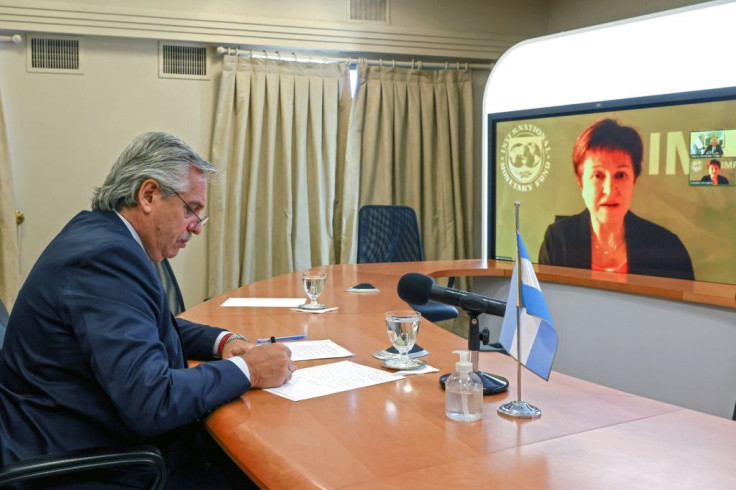IMF Working On Details Of Loan Deal With Argentina: Georgieva
The IMF is working towards reaching agreement on a new loan deal with Argentina and the next round of meetings will focus on the details, fund chief Kristalina Georgieva said Friday.
"'It takes two to tango' so both sides need to do our part and find the pathway to an agreement, and we are not yet at that point," Georgieva told reporters.
"But what I can tell you is that we are we are working in a very constructive way to reach an agreement."
A spokesman for the International Monetary Fund told reporters on Thursday that a team from the crisis lender will hold a new round of virtual talks with officials from Buenos Aires in coming weeks and would strive to meet the government's goal of reaching a deal by May.
Georgieva said that mission will get into the specific questions on "the likely shape of the program."

She stressed the need to balance stability with getting aid to the most vulnerable people and help boost economic growth driven by the private sector.
Even prior to the Covid-19 pandemic, the South American nation was facing a severe economic crisis despite massive IMF aid in recent years.
The coronavirus crisis exacerbated already high unemployment and poverty rates, and the government of President Alberto Fernandez is aiming to renegotiate repayments on a $44 billion loan received from the IMF in 2018.
The South American country has been in recession since that year, and the IMF projects GDP will contract nearly 12 percent in 2020 while poverty has already soared to over 40 percent.
© Copyright AFP {{Year}}. All rights reserved.





















